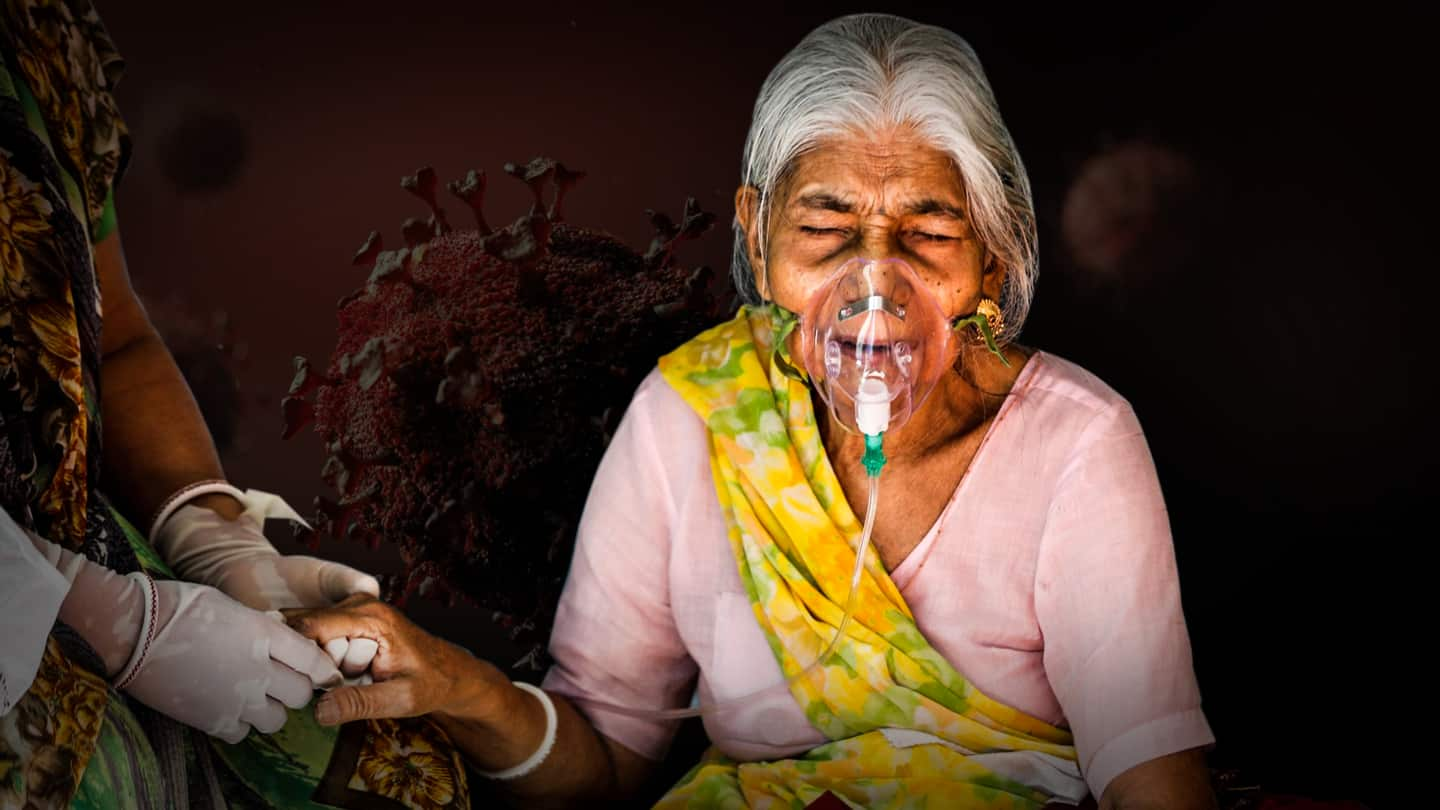
Coronavirus: India reports 3.62 lakh new cases, 4.1K more deaths
What's the story
India on Thursday reported 3.62 lakh new coronavirus infections along with over 4,100 more fatalities.
India is facing a brutal second wave of COVID-19, and even though the government has indicated that infections have plateaued, experts say the decline in COVID-19 cases will likely be slow.
Meanwhile, the government has ignored repeated calls for a nationwide lockdown amid warnings of an imminent third wave.
Statistics
India's tally reaches 2.37 crore cases, 2.58 lakh deaths
According to the Union Health Ministry, till Thursday morning, India reported a total of 2,37,03,665 COVID-19 cases. The death toll has reached 2,58,317.
Since the beginning of the pandemic, 1,97,34,823 patients have recovered, while 37,10,525 cases involve active infections.
In the past 24 hours alone, India recorded 3,62,727 new infections and 4,120 fresh fatalities.
17,72,14,256 vaccine doses have been administered so far.
States
Maharashtra alone reports 46.7K new cases
Maharashtra's daily infections continued to rise as 46,781 more people tested positive in the state.
Karnataka—the second worst-hit state after Maharashtra—reported 39,998 new cases.
Meanwhile, the third worst-hit Kerala added a record 43,529 new cases and Uttar Pradesh reported 18,125 new cases.
Tamil Nadu—the fifth worst-hit state—reported 30,355 new cases; the biggest spike for the 29th consecutive day.
Lockdown
Most of India should see 6-8 week lockdown: ICMR head
Indian Council of Medical Research Director-General Dr. Balram Bhargava told Reuters that all districts with a test positivity rate of over 10% should be under a lockdown for six to eight weeks.
Currently, three-fourths of India's 718 districts have recorded a positivity rate above 10%, including cities like New Delhi, Mumbai, and Bengaluru.
The ICMR is India's apex health research body handling the outbreak.
Information
Slight delay in government's response to COVID-19: Dr. Bhargava
Several states have independently imposed restrictions ranging from night curfews to complete lockdowns. However, the central government is reluctant to call for a nationwide lockdown. Dr. Bhargava said there was a "slight delay" in the government's response to the crisis.
Delayed response
April 15 meeting called for lockdown: Dr. Bhargava
At an April 15 meeting, the National Task Force on COVID-19 had recommended lockdowns for regions with a positivity rate above 10%, Dr. Bhargava said.
On April 20, Prime Minister Narendra Modi said lockdowns should be a "last resort."
Separately, the Modi government reportedly ignored warnings over new coronavirus variants. Modi also faces criticism for allowing massive poll rallies and religious gatherings through April.
Variant
India's genome sequencing efforts fall short
The World Health Organization has called for more genome sequencing of the B.1.617 variant of the coronavirus, first detected in India in October. It has identified B.1.617 as a "variant of concern."
However, genome sequencing in India continues at a snail's pace.
Only 0.1% of positive samples in India were sequenced and uploaded to GISAID (a global data-sharing effort), the WHO said this week.
Obstacles
Scientists blame bureaucratic obstacles, government
Alina Chan—a postdoctoral researcher at Broad Institute of MIT and Harvard tracking global genome sequencing efforts—told AP that India uploads 0.49 sequences per 1,000 cases to GISAID.
In comparison, the US uploads 10 in 1,000, while the UK uploads 82 per 1,000.
Indian scientists blame bureaucratic obstacles and the government's reluctance to share data.
Without genome sequencing, worrisome mutations could go undetected, Chan warned.